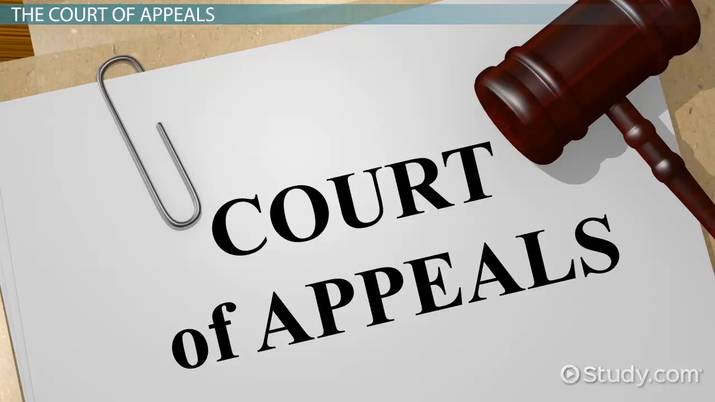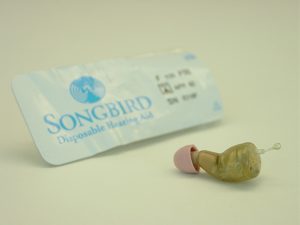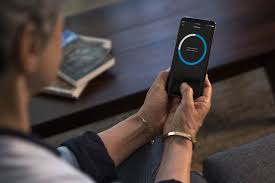
Internet Sales of Hearing Aids ARE Legal
Direct patient access to affordable hearing aids is an important issue that has received increased attention of late. With the high cost of hearing aids, there have been calls for direct patient access to these devices. In the past, some states had passed laws requiring customers purchase hearing aids exclusively from state-licensed hearing aid provider’s. However, in an important 2006 federal court decision, state laws that required state licensed dispensers to exclusively fit hearing aids was struck down by the federal 8th Circuit Court of Appeals.
INTERNET, ONLINE & MAIL ORDER HEARING AID SALES
Lloyd Hearing Aids of Rockford, Illinois sold hearing aids via mail order for over 45 years, and now sells them online. Hearing Help Express of DeKalb, IL started selling hearing aids via mail order more than 31 years ago. HearSource.com started selling personal programmable hearing aids online with remote programming, support, and adjustments in 2006.
Currently, internet hearing aid sales are synonymous with previous mail-order sales. Those early mail-order companies followed maturing marketing and technology trends and all now sale via the internet. Today a simple online search for “hearing aids” will provide hundreds of choices for hearing aid providers.
In an attempt to protect local in-state audiologists and dispensers, attempts were made to ban internet/mail-order hearing aid sales with some states passing laws prohibiting the sale of internet/mail-order hearing aids.
However, such state laws were contested in the 2006 case “Missouri Board of Examiners for Hearing Instruments Specialists v. Hearing Help Express”. The 8th Circuit Court of Appeals was asked to review a lower federal district court decision that had initially halted Hearing Help Express from selling hearing aids to the residents of Missouri. On review of the lower court’s decision, the US Court of Appeals for the 8th Circuit reversed the district court’s ruling. The 8th Circuit Court of Appeals held that the Missouri state law was invalid because it was preempted by the federal Medical Devices Amendment (MDA) to the Food, Drug, & Cosmetics Act, 21 U.S.C.
The federal Medical Devices Act states that No State… may establish…any requirement (1) which is different from, or in addition to, any requirement applicable under this chapter to the device, and (2) which relates to the safety or effectiveness of the device or to any other matter included in a requirement applicable to the device under this chapter. Under federal law, an adult patient who wishes to purchase a hearing aid must either undergo an auditory evaluation or execute a signed waiver prior to being allowed to purchase a hearing aid. This is interpreted that under federal law, an auditory examination is optional prior to any hearing aid purchase. Overall, the Missouri law was considered to be in direct conflict with the federal regulations, hence unenforceable.
Essentially, the Court held that adult patients may purchase hearing aids OTC (over-the-counter) in retail stores, online or through mail order without state interference.
United States Court of Appeals,Eighth Circuit.
MISSOURI BOARD OF EXAMINERS FOR HEARING INSTRUMENT SPECIALISTS, Plaintiff-Appellee, v. HEARING HELP EXPRESS, INC., Defendant-Appellant.
No. 05-3313.
Decided: May 11, 2006
In Missouri Board of Examiners for Hearing Instrument Specialists v. Hearing Help Express, Inc., (Missouri Board, 2006) Hearing Help Express, an out-of-state mail order/Internet hearing aid seller, asked the federal 8th Circuit Court of Appeals to review a lower federal district court decision. The lower court had precluded Hearing Help Express from selling hearing aids to residents of Missouri without prior audiologic fitting or testing, as required by state law.
On review of the lower court’s decision, the appellate court reversed the district court’s ruling. It held that the Missouri state law was invalid because it was preempted by the federal Medical Devices Amendment (MDA) to the Food, Drug & Cosmetics Act, 21 U.S.C. §360(k).
The MDA indicates that:
No State … may establish … any requirement -(1) which is different from, or in addition to, any requirement applicable under this chapter to the device, and (2) which relates to the safety or effectiveness of the device or to any other matter included in a requirement applicable to the device under this chapter.
Regarding hearing aids, under federal regulations implementing the MDA, an adult patient that wishes to purchase a hearing aid must either undergo an auditory evaluation or execute a signed waiver prior to being allowed to purchase it (21 C.F.R. §801.421(a)). Hence, under federal law, an auditory examination is optional prior to hearing aid purchase.
The Missouri law was in direct conflict with the federal regulations. The state law directed that “[n]o person shall (1) sell through the mails, hearing instruments without prior fitting and testing by a hearing instrument specialist.” (Missouri Statute §346.110(1)). Audiological fitting and testing by a “hearing instrument specialist” (i.e., an audiologist) was mandatory under state law before a patient could purchase the device.
The federal appellate court noted that if acts which are simply permitted by federal law are made mandatory by state law, the state law requirements would be deemed “in addition to the federal requirement.” Applying this principle to the Missouri state law (Missouri Statute §346.110(1)), the court held:
Since the language used in [the MDA] expressly prohibits certain types of state regulation, we … conclude that the requirements in the Missouri statute are ‘different from or in addition to’ those prescribed by the MDA. The Missouri statute therefore ‘interfere[s] with the execution and accomplishment of the objectives of the FDA’s hearing aid regulation,’ … and must be deemed preempted by the MDA.
The federal appellate court reversed the federal district court ruling, and ordered the federal district court to enter judgment in favor of Hearing Help Express. The decision thus allows adult patients to purchase hearing aids without audiologic fitting or testing, and for companies to sell devices online, via the internet or mail, without individual state interference.
LOW COST HEARING AIDS
Attempts to introduce low-cost or affordable hearing aids to the market through traditional hearing aid dispensers has repeatedly failed. Local hearing aid dispensers believe that everyone is willing to or able to make a hearing aid purchase with a capital “C” (Commitment of many $$ dollars). This issue is as old as hearing aids. Major hearing aid manufacturers all have excellent affordable hearing aids in their product lines, but obtaining these affordable hearing systems have been few and far between from local dealers.
The Songbird Experiment / Failure
In 2000, the first attempt to offer a quality, low-cost digital hearing aid was called “Songbird”. The Songbird hearing aid was an affordable disposable device. Songbird failed due to dispenser non-interest. It was a good hearing aid, when compared with
leading programmable digital hearing aids of the time, the Songbird performed technically as well, or even better than many premium-priced hearing aids.
Two reasons that the product was not the commercial success hoped for: 1) dispensers were unwilling to sell a product that cost the consumer $39.00 a month, substantially depressing gross profit margins, and 2) the instrument did not fit as many ears cosmetically as had been projected due to its fixed design. With today’s sized components, the latter would have been essentially eliminated. What the Songbird showed, however, was that a quality hearing aid could be produced consistently for a low cost.
Does this mean that all low-cost hearing aids are high quality? NO, many have limited adjustability, simple processors, and cheap components.
For the most part, affordable quality hearing aids are not offered through traditional distribution channels. Traditional sellers of hearing aids dispense approximately 14-15 hearing aids per month. They must sell premium high margin aids to meet their monthly business financial obligations.
Currently, the primary source of for quality affordable hearing aids is via professional online venders. Professional online hearing aid sellers pay the exact same wholesale price per hearing aid as local hearing aid dealers do, they just operate on a lower profit margin peer unit and make up the difference in sales volume.
Professional Online Hearing Aid Sales
The obtaining of high quality affordably priced name brand hearing aids via online providers is the obvious choice for many consumers. Purchasing hearing aids from non-professional sources (eBay) is always a mistake. Professional online hearing aid providers care and support their customers exceptionally well. HearSource customers can receive support and adjustments anywhere in the world.
HearSource offers new premium brand name hearing aids with full manufacturer warranties for up to $2,000 to 3,000 less than local providers. Consider us, we’ll do a great job for you.









This Post Has 3 Comments
Thanks for explaining that if I need to get a hearing aid online, I should get my hearing tested locally before I purchase it. I will start looking for hearing aids online and see what would be best for me. I could even remotely meet with your audiologist over your telehealth app!
Welcome to the 21st century. The laws have finally caught up with the technology. Thank goodness.
How many calls, chats, emails, do we get weekly from audiologists stating, “You can’t sell hearing aids online in my state”? Dozens. Now ya know. Good article.